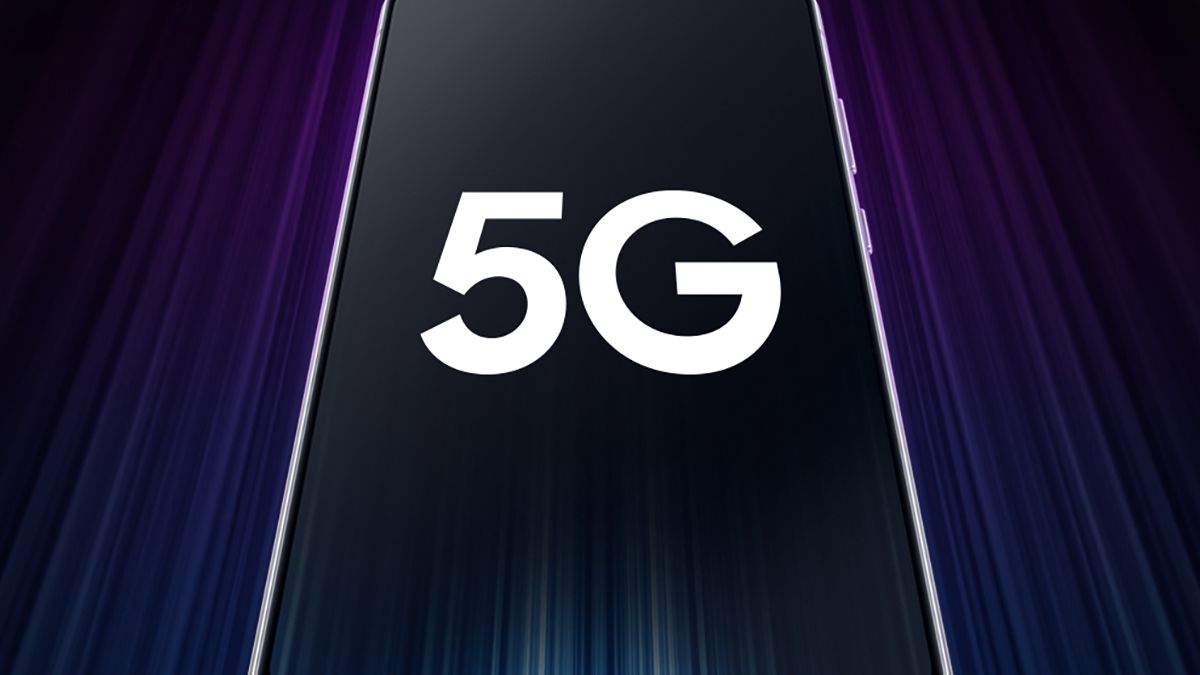

It seems 5G is the hot topic in mobile right now – whether it's 5G phones, or 5G in the UK, or how it's changing everything from self-driving cars to signal strength at stadiums. But what exactly is 5G? And how is it making a difference to our tech now and in the future?
We've put together this 5G explainer to fill you in on exactly what 5G means and which 5G phones you can already make use of. The good news is it's all good news – data speeds are about to get faster and more reliable as the 5G tech rolls out.
- 5G in the UK: phones, networks, deals, and everything you need to know
- 5G phones: all the handsets you can buy that support the new tech
5G explained: what is 5G?

5G explained: what is 5G?
First: what is 5G? It's the latest wireless transmission standard being rolled out by the International Telecommunication Union or ITU and other industry bodies – it's the successor to 4G or LTE, which followed on from 3G (can you spot the pattern?).
Once phones and the network infrastructure have been made 5G-capable, we can all start enjoying faster upload and download speeds, as well as stronger signal strength in busy areas (like sports stadiums and apartment blocks).
Many more 5G devices will be able to stay online all the time, which is where smart home kit and self-driving cars come into the picture. We should also see reduced latency and reduced power draw (think longer battery life) in devices that are 5G enabled.
How does 5G work?
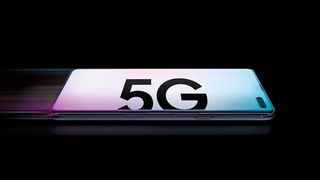
How does 5G work?
Cellular data gets transmitted via radio waves, and the shorter the frequency of these waves, the more data they can carry. 5G relies on millimetre wave (mmWave) technology, which means – you've guessed it – very compact radio waves, enabling a lot of data to be transmitted very quickly.
As an added bonus, the way 5G works means the hardware devices required to transmit these waves can be smaller and less powerful, which is why the Internet of Things should benefit as well: 5G antennas and modems shouldn't take up much room inside gadgets or put too many demands on energy use either.
Sign up to the T3 newsletter for smarter living straight to your inbox
Get all the latest news, reviews, deals and buying guides on gorgeous tech, home and active products from the T3 experts
There are downsides – the faster 5G millimetre wave technology doesn't have the same range as you get with the lower frequency radio waves, and has more trouble with obstacles (like walls) as well. These are some of the problems manufacturers and networks will be working to overcome as 5G rolls out.
4G vs 5G: what's the difference?

4G vs 5G: what's the difference?
You've got two key differences when it comes to 4G vs 5G: speed and capacity. Not only should your connection be faster, it should be more stable as well, no matter how many other 5G users are around you.
A good 4G signal is as good as Wi-Fi now (provided you have the data plan to cope) but 5G pushes that even further. We're looking at speed increases of up to 20-30 times or even more (it's hard to be precise because there'll be a lot of variation depending on the exact conditions in each case).
There are other differences in the 4G vs 5G comparison chart too. 5G should also offer lower latency (faster response times for projects like Google Stadia), smarter data traffic management, and speedier upload times too.
How fast are 5G speeds?
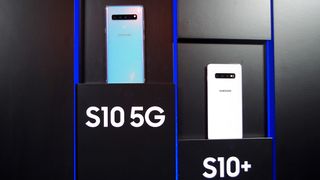
How fast are 5G speeds?
With so many variables to consider – like your distance from a cell tower and how many people are around you – it's hard to be precise about how fast 5G speeds are. That said, improvements of at least 15-50 percent should be possible day-to-day in the real world, with the tech still being improved and optimized.
Hypothetically, in lab conditions, 5G can improve on 4G many more times than that, so there's room to grow: imagine full 4K movies downloading in just a minute or two, and you're in the right area when it comes to 5G speeds.
The figure of 10 Gbit/s has been proposed as a limit 5G could reach in a year or two, some 30 times faster than the 4G LTE we're used to today. In test conditions, 5G is already reaching speeds of around 3 Gbit/s, but as we've said, what you'll actually get out on the street is going to vary.
How can I get a 5G mobile connection?
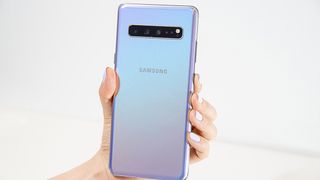
How can I get a 5G mobile connection?
There are two parts to getting a 5G mobile connection: having a 5G-enabled phone, and connecting it to a 5G-enabled network. With that you're ready to go, though note that 5G tech is still being refined and improved all the time.
The big UK and US networks have been rolling out 5G infrastructure across the course of 2019, and that should ramp up during 2020. The first 5G handsets – including the Samsung Galaxy S10 5G and the OnePlus 7 Pro 5G – have already hit the market, with more phone makers getting involved all the time.
Having blanket 5G coverage everywhere you go is of course going to take some time, and for now there's a price premium on 5G-capable devices for 5G mobile (though 5G networks will of course still work fine with non-5G phones – just at a slower pace).
Which 5G network is best?
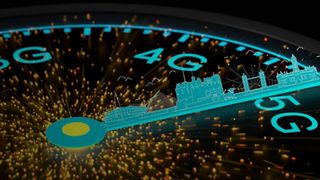
Which 5G network is best?
At the moment there's no "best" 5G network in the UK, as all the big companies – O2, EE, Vodafone and Three – are working on getting the technology up and running in the first place. Those four have at least a limited amount of 5G connectivity available as we head into 2020.
The good news is that there does seem to be plenty of momentum in the industry to get everyone up to 5G speeds in a reasonable timescale. Consumers are likely to demand the tech as early as possible, which means there's money to be made, and that always helps to give companies a little extra incentive.
As we mentioned, 5G can work with smaller pieces of equipment, and that means networks don't necessarily have to rip up and replace existing cell towers. 5G kit can be installed in existing infrastructure, which should also speed up the roll out.
How does 5G technology help?

How does 5G technology help?
There are all kinds of ways 5G tech can help in our daily lives. Think about anything you download on your phone, whether it's apps or movies – that can all be streamed in an instant, so phones are going to end up needing less and less local storage. Music tracks in the cloud are going to play as quickly as those on your phone.
Then you've got all the other devices that need an internet connection, from smart lights to the video dashboard in your car: the bandwidth and stability of 5G is going to mean all these devices can stay connected at high speeds without any risk of them knocking each other off the 5G network.
As with any new technology, 5G phones and other devices are going to be expensive to begin with, and if there's no 5G in your neck of the woods you'd be right to think it a waste of cash for the time being. If you have the budget and want to future-proof your phone though, it's worth investing in.
What about 5G Wi-Fi?

What about 5G Wi-Fi?
5G has the potential to replace Wi-Fi too, in some situations – if it proves fast and reliable enough, you won't need a personal router, because the signal coming from the closest cell tower will be enough to provide high-speed internet access to all the devices in your home.
HTC has already dived into the market with the HTC 5G Hub: it's like a Wi-Fi router but instead of blasting Wi-Fi around your house, it distributes a 5G signal instead. Of course with 5G available in limited quantities and in limited areas right now, it's going to be a while before something like this becomes really useful.
What's most likely to happen is that 5G and Wi-Fi will co-exist. Wi-Fi continues to improve and get faster, and offers enough range and bandwidth to be able to survive even when 5G is available just about everywhere – even in remote rural locations.
Dave has over 20 years' experience in the tech journalism industry, covering hardware and software across mobile, computing, smart home, home entertainment, wearables, gaming and the web – you can find his writing online, in print, and even in the occasional scientific paper, across major tech titles like T3, TechRadar, Gizmodo and Wired. Outside of work, he enjoys long walks in the countryside, skiing down mountains, watching football matches (as long as his team is winning) and keeping up with the latest movies.
-
 I just watched my favourite episode of TV this year – and it wasn't what I expected
I just watched my favourite episode of TV this year – and it wasn't what I expectedThe Studio's pilot blew me away
By Max Freeman-Mills Published
-
 This affordable Android phone impressed me more than a budget Samsung
This affordable Android phone impressed me more than a budget SamsungThe direct successor to Nothing's best-selling phone to date loses out on the Pro's telephoto camera – but does try something new with the Essential Key
By Alex Walker-Todd Published
-
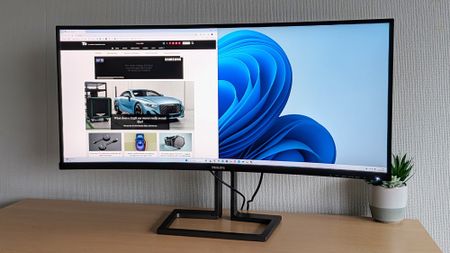 Philips 40B1U6903CH review: a 5k monitor ready to level up your productivity
Philips 40B1U6903CH review: a 5k monitor ready to level up your productivityIt's got the lot for a home office, but gamers won't be convinced
By David Nield Published
-
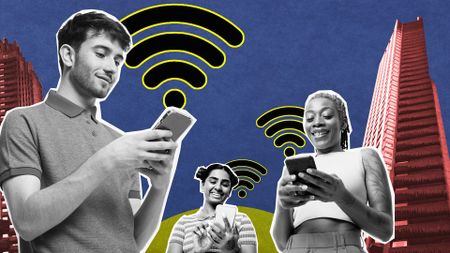 So where’s the promised 5G revolution?
So where’s the promised 5G revolution?Jon Bentley is disappointed that 5G hasn’t transformed the way we live – but he hasn’t given up hope just yet
By Jon Bentley Published
-
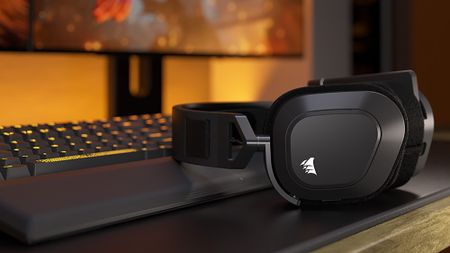 Corsair HS80 Max Wireless review: a solid mid-tier gaming headset
Corsair HS80 Max Wireless review: a solid mid-tier gaming headsetA capable audio option for the price you're paying
By David Nield Published
-
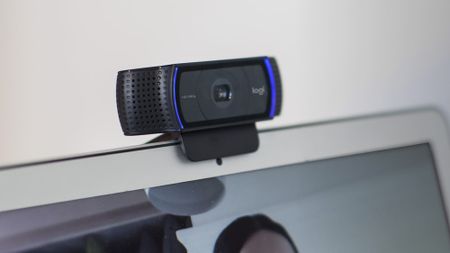 Logitech C920 Pro HD review: a solid and affordable webcam upgrade
Logitech C920 Pro HD review: a solid and affordable webcam upgradeThe Logitech C920 Pro HD has plenty to offer shoppers on a budget
By David Nield Published
-
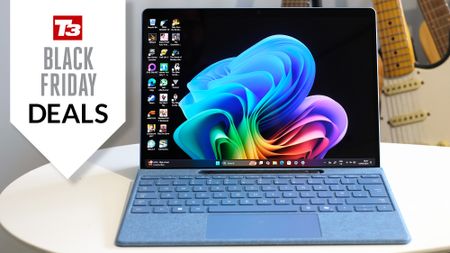 Microsoft's 5-star Surface with keyboard is Best Buy's killer deal
Microsoft's 5-star Surface with keyboard is Best Buy's killer dealBest buy it at Best Buy!
By David Nield Published
-
 Sonos' premium soundbar just hit its lowest-ever price in 5-star deal
Sonos' premium soundbar just hit its lowest-ever price in 5-star dealTop-tier sound doesn't have to cost top dollar
By David Nield Published
-
 Huge 75in Sony TV is now cheaper than ever in Amazon's Black Friday sale
Huge 75in Sony TV is now cheaper than ever in Amazon's Black Friday saleYou can now get a top-quality TV for less, with 100s of dollars off this set
By David Nield Published
-
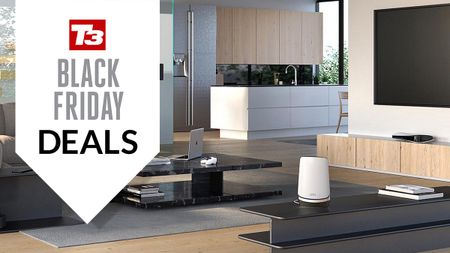 Improve your Wi-Fi with 5-star Netgear kit – now cheaper than ever
Improve your Wi-Fi with 5-star Netgear kit – now cheaper than everThis is one of the most powerful home Wi-Fi setups you can have – and it has hit a new low price on Amazon
By David Nield Published
